We run a number of different projects in various parts of the country to help farmers, widows and their families to increase their crop yield, start or expand small Businesses and sustain life in tough situations.Our major areas of focus are: Water Conservation, Rain water harvesting, Organic Farming, Rural Poverty and health, Rural education and helping widows of farmers who already committed suicide.
Here is a list of our previously completed projects
Sustainable Farming – Nellore Region (First Year)
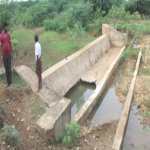 We have completed training in Lingasamudram, the pilot village for this project, to teach farmers the preparation method for organic fertilizers and organic pesticides such as Egga Kashayam, Ganamurtham and Jeevanamrutham. Read more
We have completed training in Lingasamudram, the pilot village for this project, to teach farmers the preparation method for organic fertilizers and organic pesticides such as Egga Kashayam, Ganamurtham and Jeevanamrutham. Read more
Sustainable Farming – Nellore Region (Second Year)
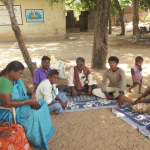 To enable the small and marginal farmers to grow their food in the available lands to achieve food security by following local methods of cultivation towards sustainable farming and preserving their land, water, food for future generations through land and Soil Management, Water Conservation/ Natural Farming, Drip Irrigation, Old Community wells Recharging. Read more
To enable the small and marginal farmers to grow their food in the available lands to achieve food security by following local methods of cultivation towards sustainable farming and preserving their land, water, food for future generations through land and Soil Management, Water Conservation/ Natural Farming, Drip Irrigation, Old Community wells Recharging. Read more
Project Udaan
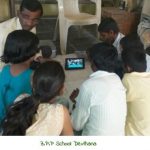 Educational resources on organic agriculture for farmers and learning apps for their children. It is our attempt to take farmers education beyond schools and bring it to their doorstep. read more
Educational resources on organic agriculture for farmers and learning apps for their children. It is our attempt to take farmers education beyond schools and bring it to their doorstep. read more
Sustainable Horticulture – Trichirapalli, Tamil Nadu(First Year)
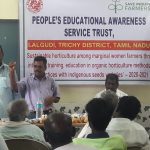 This project is about implementing sustainable horticulture among marginal poor farmers through intensive training, education in organic horticulture methods and practices with indigenous seeds varieties. Read more
This project is about implementing sustainable horticulture among marginal poor farmers through intensive training, education in organic horticulture methods and practices with indigenous seeds varieties. Read more
Sustainable Horticulture – Trichirapalli, Tamil Nadu(Second Year)
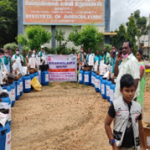 After successful completion of the first year sustainable horticulture project in Tamil Nadu, SIF and PEAS trust have continued to make progress in the second year. Read more
After successful completion of the first year sustainable horticulture project in Tamil Nadu, SIF and PEAS trust have continued to make progress in the second year. Read more
Kisan Samridh
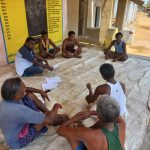 Developing a demonstrable model of farming with 25 selected, marginal or poor farmers in five villages of Pithora Block which can catch the attention of other farmers so that they will adopt the methods with the potential to improve their lives from economic and social front. Read more
Developing a demonstrable model of farming with 25 selected, marginal or poor farmers in five villages of Pithora Block which can catch the attention of other farmers so that they will adopt the methods with the potential to improve their lives from economic and social front. Read more
Tumkur Region (First and Second year)
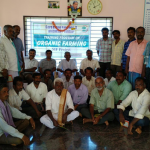 Our purpose for this project was to train and support 15 small and marginal farmers from 5 villages in Tumkur district to practice organic farming. Motivate them to adopt low cost, innovative and eco friendly methods for sustainable farming. Read more
Our purpose for this project was to train and support 15 small and marginal farmers from 5 villages in Tumkur district to practice organic farming. Motivate them to adopt low cost, innovative and eco friendly methods for sustainable farming. Read more
Sticks to grow
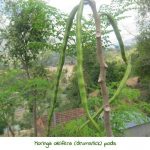 Cultivation of hardy drumstick trees in drought-prone areas via drip irrigation. As drumstick requires less water for growth, it is an apt crop to grow in water scarce regions. read more
Cultivation of hardy drumstick trees in drought-prone areas via drip irrigation. As drumstick requires less water for growth, it is an apt crop to grow in water scarce regions. read more
Adopt -a Widow
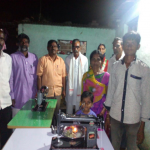 Support widows of farmers by establishing small businesses that bring a regular source of income. The goal is to help distressed widows to start a sustainable long term means of livelihood. read more
Support widows of farmers by establishing small businesses that bring a regular source of income. The goal is to help distressed widows to start a sustainable long term means of livelihood. read more
Hydroponics
 Grow cost-effective fodder to feed livestock, especially in regions with water scarcity and space constraints. read more
Grow cost-effective fodder to feed livestock, especially in regions with water scarcity and space constraints. read more
Agroforestry in Assam – Phase 1
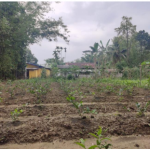 This project has been designed to improve the villagers’ livelihoods and provide a sustainable income for their families. The program is aimed to not just plant but create a wide socio-environmental impact – women empowerment, poverty alleviation, biodiversity promotion and greening of degraded land. Read more
This project has been designed to improve the villagers’ livelihoods and provide a sustainable income for their families. The program is aimed to not just plant but create a wide socio-environmental impact – women empowerment, poverty alleviation, biodiversity promotion and greening of degraded land. Read more
Agroforestry in Assam – Phase 2
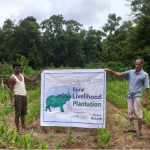 During Phase 2, a total of 3000 seedless lemon trees were planted on the lands of 15 farmers in Jorhat, Assam. SankalpTaru Foundation (STF) is thankful to Save Indian Farmers for providing us an opportunity to undertake the Rural Livelihood Support Plantation Program in Jorhat, Assam. Read more
During Phase 2, a total of 3000 seedless lemon trees were planted on the lands of 15 farmers in Jorhat, Assam. SankalpTaru Foundation (STF) is thankful to Save Indian Farmers for providing us an opportunity to undertake the Rural Livelihood Support Plantation Program in Jorhat, Assam. Read more
Project Utthan
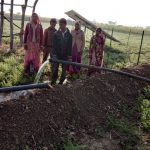 Project Utthan was about Increasing Adaptive Capacity to Climate Change through Developing Climate Smart Village Shubhdhara a Vulnerable Village selected for piloting of proposed project in District Baran of Rajasthan. Read more
Project Utthan was about Increasing Adaptive Capacity to Climate Change through Developing Climate Smart Village Shubhdhara a Vulnerable Village selected for piloting of proposed project in District Baran of Rajasthan. Read more
Beej Swaraj (First Year)
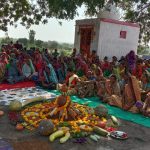 The project aims at promoting Sustainable Integrated Farming System (SIFS) to address the issues of prevalence of malnutrition among women and children belonging to indigenous community. Read more
The project aims at promoting Sustainable Integrated Farming System (SIFS) to address the issues of prevalence of malnutrition among women and children belonging to indigenous community. Read more
Crop2Kitchen
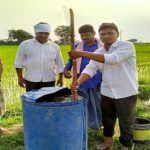 The purpose of this project is promotion and popularization of organic farming for enhanced agricultural sustainability. We plan to train and support 37 small and marginal farmers from 6 clusters, 7 villages in Warangal rural, Mahabhubabad and Khammam district to practice organic farming. Read more
The purpose of this project is promotion and popularization of organic farming for enhanced agricultural sustainability. We plan to train and support 37 small and marginal farmers from 6 clusters, 7 villages in Warangal rural, Mahabhubabad and Khammam district to practice organic farming. Read more
Pathari Reservoir
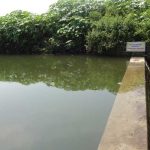 Restoration of a reservoir and canal for irrigation needs of a village. The reservoir will help with water conservation, so that it lasts throughout the year for agriculture as well as livestock needs. read more
Restoration of a reservoir and canal for irrigation needs of a village. The reservoir will help with water conservation, so that it lasts throughout the year for agriculture as well as livestock needs. read more
Pragati Gram
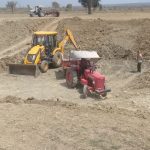 An Effort of developing prototype villages through water replenishment activities.The project is about building farm ponds, building field bunding across farms and plant appropriate trees and ultimately increase the production in villages Panari and Narainpura. read more
An Effort of developing prototype villages through water replenishment activities.The project is about building farm ponds, building field bunding across farms and plant appropriate trees and ultimately increase the production in villages Panari and Narainpura. read more
Poonch Project
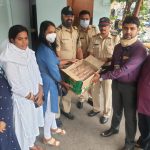 Providing livelihood to women in the odd conditions in these regions is the main focus of the project. SIF has partnered with ASEEM foundation to serve the needs of the farming community with special focus on livelihood management for families in this region. read more
Providing livelihood to women in the odd conditions in these regions is the main focus of the project. SIF has partnered with ASEEM foundation to serve the needs of the farming community with special focus on livelihood management for families in this region. read more
Swabhiman
 With the help of our partner Rang De, SIF plans to set up a fully-fledged Swabhimaan Center in Sittlingi Organic Farmers Association to create a self-sustaining model for credit in the community. We plan to do this through customized financial literacy that focuses on bringing about long term behavior change. Read more
With the help of our partner Rang De, SIF plans to set up a fully-fledged Swabhimaan Center in Sittlingi Organic Farmers Association to create a self-sustaining model for credit in the community. We plan to do this through customized financial literacy that focuses on bringing about long term behavior change. Read more
Project Saangati
 Education and implementation of yield-improving organic farming practices in 4 different agro-climatic zones. This project is about guiding farmers to use organic agricultural practices, thus increasing their crop yields. read more
Education and implementation of yield-improving organic farming practices in 4 different agro-climatic zones. This project is about guiding farmers to use organic agricultural practices, thus increasing their crop yields. read more
Project Jal Phase 1
 Help needy, marginal farmers in drought affected areas, adopt rainwater harvesting techniques so they have a sustainable means of irrigation water throughout the year. Read more
Help needy, marginal farmers in drought affected areas, adopt rainwater harvesting techniques so they have a sustainable means of irrigation water throughout the year. Read more
Project Sumaheet
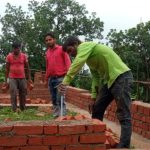 Developing eco- friendly Home-Stays to promote increased linkages between tourism and ecology/agriculture that will generate economic investment opportunities, build resilience in rural tribal communities and enhance the sustainable development of both the tourism and agriculture sector. Read more
Developing eco- friendly Home-Stays to promote increased linkages between tourism and ecology/agriculture that will generate economic investment opportunities, build resilience in rural tribal communities and enhance the sustainable development of both the tourism and agriculture sector. Read more

 Our Partner
Our Partner